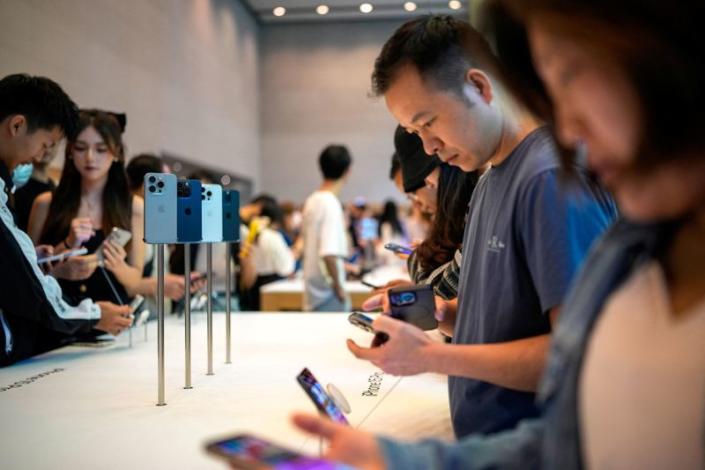Apple is in talks with two of China’s biggest tech conglomerates about using their artificial intelligence models in iPhones sold in China.
Sources have told Reuters that Apple executives have talked with their counterparts at Tencent and Bytedance, the owner of TikTok, about integrating their AI models into iPhones sold in China.
ALSO SEE: India Looking at Possible Trade Deal With Trump, Sources Say
The US company started the rollout of OpenAI’s ChatGPT into its devices this month, part of the Apple Intelligence product that allows its Siri voice assistant to tap the chatbot’s expertise including on user queries about photos and documents such as presentations.
But ChatGPT is not available in China and the country’s regulatory requirements mandate that generative AI services obtain government approval before public release. That has forced Apple to seek local partners for its AI features at a time when its market share in the country is declining.
Apple’s discussions with Tencent and ByteDance on using their AI models are at a very early stage, according to three sources, who declined to be named as the talks are not public.
ByteDance declined to comment, while Apple and Tencent did not respond immediately to requests for comment.
A successful partner for Apple’s AI services in China could be a major winner in the country’s increasingly crowded AI field where dozens of large language models have been launched by large tech firms as well as startups.
They include ByteDance’s Doubao, Tencent’s Hunyuan and search engine giant Baidu’s Ernie.
Rivalry with Huawei in China
Apple and Baidu have reportedly been in talks about using the latter’s AI model in China, but The Information this month reported the discussions faced setbacks due to technical issues, including disputes over using iPhone user data to train AI models.
Baidu did not respond immediately to a request for comment. Baidu’s Hong Kong-listed shares fell after the Reuters report, down 4.2% against a 0.6% decline in the Hang Seng index. Tencent’s shares rose 2.3%.
The absence of AI capabilities in the latest iPhones sold in China has become a major setback for Apple, as it faces declining market share in the world’s biggest smartphone market due to growing competition from domestic brands including Huawei.
Huawei, which returned to the high-end market in August with a phone using a Chinese-made chip, launched its Mate 70 series last month featuring AI capabilities powered by its proprietary large language model.
Apple briefly fell out of China’s top five smartphone vendors in the second quarter before recovering in the third quarter. The US company’s smartphone sales in China still slipped 0.3% during the third quarter from a year earlier, while Huawei’s sales surged 42%, according to research firm IDC.
- Reuters with additional editing by Jim Pollard
ALSO SEE:
New iPhone Uses Arm Chip Tech as Apple Eye AI Upgrades: FT
Apple May Turn to China After India Fire Threatens Festive Push
Huawei Looks to Steal Apple’s Tech Crown With Tri-Fold Phone
Apple Offers Big iPhone Discounts in China Amid Sales Slump
Apple to Focus on China, Roll Out AI iPhones to Revive Sales
China Orders Apple to Cut WhatsApp, Threads from App Store
Huawei Takes Another Bite Out of Apple’s Market Share in China
Huawei Profits Jump 144% in Fastest Growth Since US Sanctions
Apple Facing Rough Year in China
China’s Ban on iPhone Use Expands to Local and State Entities
























